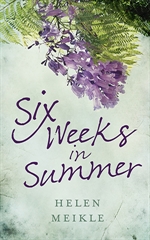DAILY PROMPT
Realize
Tomayto – tomahto, sidewalk – footpath, trunk – boot, cookies – biscuits… Realize – realise.
What can I say? I’m not just a grumpy old lady, I’m a grumpy old Australian lady who despite superficial appearances to the contrary, speaks and writes a different language.
So I thought I’d take this opportunity to clear up a few things.
Aussie is pronounced Ozzie, not Ossie.
Bloody is almost interchangeable with very.
A bluebottle is what you’d call a Portuguese man o’ war.
Bodgy applies to something thrown together with no regard for quality.
Bunyips are mythical, as are drop bears.
Chook = chicken.
Mates’ rates apply when you discount something for a friend.
Ocker can be a noun or an adjective: He’s an ocker or he’s a bit ocker. Means unsophisticated. Yobbo is similar but with undertones of uncouth, and can only be used as a noun.
Plonk is cheap wine.
Rack off – or Rack off, hairy-legs. Depart, go away, get lost.
Something that’s sitting there like a shag on a rock is too obvious to miss.
The Tall Poppy syndrome is the Australian tendency to cut the highly successful down to size.
Australian thongs go on the feet, not the body. You call them flip flops. Not sure why, since they originated in their current form in New Zealand, where they’re also known as thongs.
A tinny can be either a can of beer or a small aluminium boat with an outboard motor.
We don’t chuck shrimps on the barbie, either, we chuck prawns. Shrimps to us are a different family of decapods, much smaller, and the only ones we see here are imported in cans from Asia – not barbecue fodder at all. We also chuck snags on the barbie – ie sausages.
And while there was a kangaroo in the street here a few weeks ago, and a snake in the display window of one the shops last year, it doesn’t happen in big cities. I live in what some might call Woop Woop.


You forgot “Don’t come the raw prawn on me, Mate!” Or has that gone out of style? Did you know I lived in Australia in 1971 and 72?
Yep, knew you’d lived here (haven’t all the best people???). Coming the raw prawn isn’t popular at the moment – but there are some good ones I omitted lest those with more delicate sensibilities found them offensive!
My favourite Australian phrase is budgie smugglers. So descriptive!
🙂 It’s now in the Oxford dictionary! It’s been around awhile, but really took off when our former PM (whom most of us disliked intensely) was photographed emerging from the surf in them. Not something he ever lived down!
Glad to hear it has achieved the recognition it deserves 😊
I love the Australian language, but I’d never heard of the Tall Poppy Syndrome. It certainly wasn’t mentioned in “Let Stalk Strine,” which I studied diligently as a child.
So, what Americans call a sidewalk, and we in Britain call a pavement, you call a footpath? Ove here a footpath is a walkway – tarmacked, paved, gravelled or earthen – often in the countryside, bordered on each side by grass or trees.
It’s not surprising that the Brits, the Aussies and the Americans speak different languages, being so far-flung. Even on this small Island we have our own regional words. In some areas a swede is called a turnip, and a turnip is called a swede. Fortunately, in cookery, they’re interchangable.
No, not surprising, but it does annoy me that Australian authors have to conform to American usage to get published in America. Also insulting to the American intelligence, I’d have thought.
Your footpaths would be footpaths here as well if they were part of a populated area – eg there’s a footpath across the reserve above the beach here, to save you picking your way through picnic blankets, towels, bodies etc. But the ones in the countryside (through the bush) would be called tracks, or walking tracks.
Aus vernacular can be pretty graphic,as you’ll have seen in ‘Let Stalk Strine’ – far more likely to call a spade a bloody shovel than the Americans! Tall Poppies wouldn’t have been there because they came after the book, but they’re now embedded in the language.
The book has been recently reprinted here in the UK. I didn’t know that it had conformed to American usage becasuse I’m English – this means, all these years, I’ve been talking American Strine .
no, not that book. They couldn’t change that one! (and it probably never had an American release.) But Australian novels are littered with words we’d never use